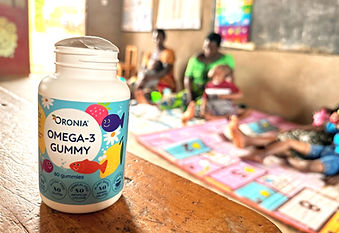How We Provide Support
Daily Meals and Nutrition During Class
RTM provides one nutritious meal during every class session. Meals are shared by children, caregivers, and staff as part of the learning environment.
Through a partnership with Oronia (Canada), nutritional supplements are also provided during class to support children’s growth and learning readiness.
Food and nutrition are provided to enable participation and focus—not as aid or incentive.


Clean Water and Hygiene Practices

RTM provides a household water filter system to each family, made possible through the generosity of our church partner, Vancouver Manna Church. This helps reduce preventable illness and supporting healthier daily routines at home. (Sawyer International Bucket System)
Hygiene education is integrated into the program through:
-
handwashing routines
-
toothbrushing training
-
daily modeling and repetition in the classroom
Caregivers practice these habits alongside their children so learning carries naturally into home life.


Referral and Limited Medical Support
RTM does not operate a medical clinic. Instead, we work through trusted local partners.
RTM partners with Nanuri Medical Centre, a Kigali-based medical center operated by Korean missionary doctors, to provide:
-
periodic health check-ups, and
-
urgent medical care when children become seriously ill.
When health concerns arise, we:
-
refer families to Nanuri Medical Centre or other appropriate local health services, and
-
support caregivers in navigating the healthcare system.
All such decisions are made carefully and compassionately, with the sole aim of removing barriers to learning.


Health & Nutrition Support
RTM provides basic health and nutrition support so that children and caregivers can fully participate in learning.
When hunger or untreated health challenges dominate daily life, learning becomes impossible. This is especially true in childhood, when physical growth, brain development, and learning readiness are closely connected.
Our health and nutrition support exists to remove barriers to participation— not to function as a relief or medical program.
Our support helps children attend class more consistently and allow caregivers to focus on learning rather than daily health crises.

